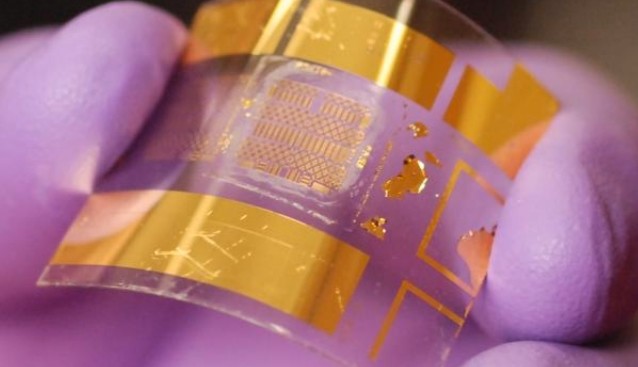Flexible transistor
on

A team of engineers from the University of Wisconsin-Madison (UW-Madison) have built the most flexible, fully-functional transistor in the world – and at the same time developed a fast, simple and cheap production process that can easily be scaled up to commercial levels. This new development can open the door to an increasingly 'connected' world, because manufacturers will be able to add 'clever' wireless features to all kinds of large and small products or objects; things that come to mind are (flexible, elastic and movable) wearable sensors and computers for humans and animals.
Transistors form the basis of practically all modern electronics. The team from UW-Madison tackled a now already 20-year old industry standard: the BiCMOS thin-film transistor (Bipolar Complementary Metal Oxide Semiconductor), which combines several desirable characteristics (speed, large current and low dissipation). This new transistor has all these characteristics – and in addition is extremely flexible.
The manufacture of traditional BiCMOS electronics is based on a large number of delicate production steps at high temperatures, where there is always the risk that even a small temperature deviation somewhere in the process can nullify all the previous steps.
On the other hand, the team under the leadership of Zhenqiang Ma have created the flexible transistor on a single-crystal silicon nanomembrane on a flexible piece of plastic using a unique process that makes many of the 'delicate' steps superfluous and therefore reduces the cost and production time considerably.


Discussion (0 comments)